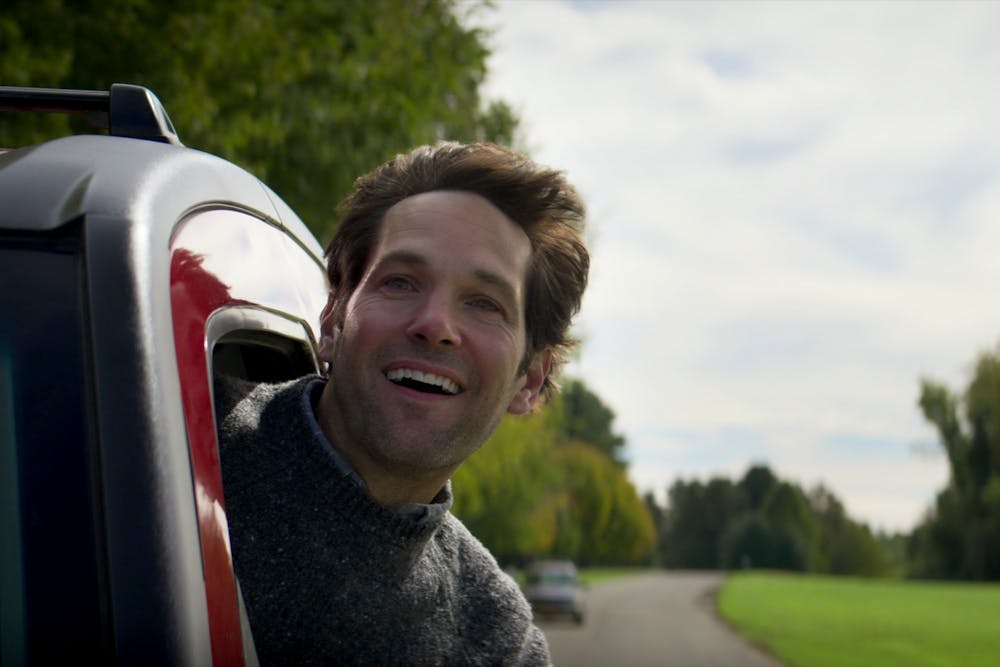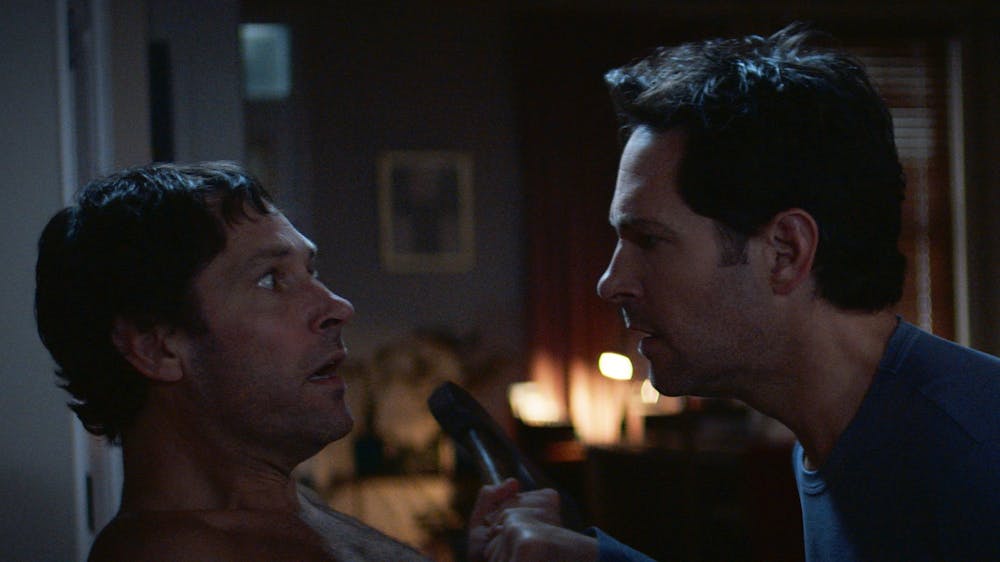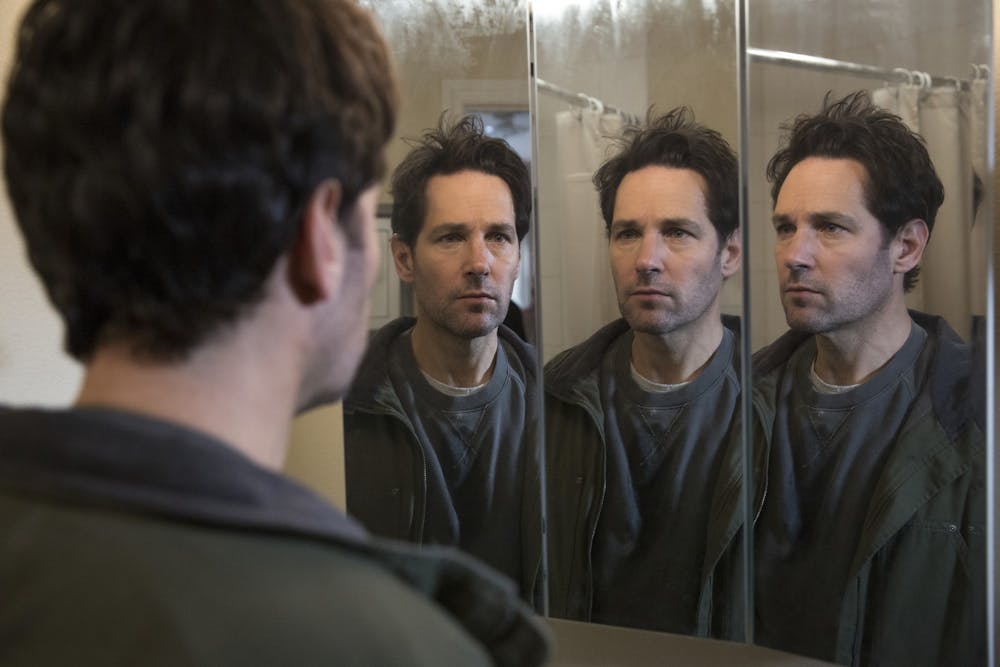The first scene you see in Netflix’s new show, Living With Yourself, is Paul Rudd clawing his way out of a grave with nothing but a diaper and a plastic bag on. It’s bizarre, kind of frightening, and vaguely off–putting—but it makes you want to keep watching.
We enter a flashback to see Paul Rudd’s character, Miles, at his office job the day before. The show makes Miles’s discontent almost to obvious: He kills a fly and tells it “you’re welcome,” and bombs an office presentation just to get immediately upstaged by a co–worker. It could not be more evident that Miles is deeply unhappy—in fact, it feels like the show doesn’t trust the audience to draw this conclusion on their own. Everything is shot in cool, depressing grays and blues.
We see Miles sneak home and accidentally trip into the credenza. He tries to initiate sex with his wife, Kate, twice and fails. Kate (Aisling Bea) is an immigrant businesswoman who is sarcastic, ballsy, and clever. My first thought was that a show about her would be a much better show. It's no surprise that episode five, which focused on her character—is the best of the season.
You learn that the couple has been trying to have a family, except Miles keeps skipping his appointments at the fertility clinic. Miles is a total asshole, and even Paul Rudd’s intrinsic charm doesn’t keep the character from being so irritating—because all of Miles' failures seem to come from his own inaction. It's tiring to root for downtrodden, unlikable protagonists with few things actually wrong in their lives.

A co–worker recommends that Miles visit a spa, guaranteeing it will make him a more successful, happier man. He empties out his entire bank account without telling his wife, then blows $50,000 there. Something goes wrong and he ends up waking up in a grave in the woods as we see in the beginning. He runs home and slams his hip into the credenza again (so we know it’s still our Miles), and ends up bumping into a clone of himself living in his home.
At this point, I settled in for a traditional clone narrative—but, to the show’s credit, they try to do something different. By episode three, the two versions of Miles tell the world and Kate about their situation instead of hiding it, and this opens up many original narrative pathways.
New Miles—as he is so helpfully labeled, so the audience doesn’t have to strain themselves—dresses better than Miles; he’s much more polite too. The two versions of Miles have the same memories and are uncannily like each other, but their differences are the crux of the show’s conflict. Trying to pick out the little details that separate the two was, admittedly, fun and interesting. Miles says “fuck you,” and orders burgers, and slouches; New Miles says “Sir," Please,” orders a parfait, and sits up perfectly straight.

New Miles is much happier than the original Miles, despite having all his memories. Is the show framing happiness as a choice or a function of genetics? It’s unclear. New Miles is shot in earthy browns and bright greens; he runs through a field just to feel the sun in his face, and he kills it at work. He is far more devoted and overly complimentary toward Kate. New Miles is annoying in an entirely different way, and neither character plays well off of Rudd’s natural charm or likability.
I watched five episodes, and at this point—more than halfway through the series—there still wasn’t a clear conflict or narrative route. What the show really lacks is the titular "living with yourself." The two Miles' hardly interact with one other. When they do, Living With Yourself has some of its strongest moments. Though some episodes briefly gesture at the philosophical issues of being a clone and meeting yourself, the show pulls back before these can ever develop into anything concrete.
The relationship between New Miles and original Miles should have been the focal point of the show. There was so much potential to speak on self–love, the way we feel about ourselves, and our inability to hide from ourselves. But what could have been great is muddled with a love triangle and unnecessary, crisscrossing conflicts. The show is somehow doing too much and too little at the same time.

